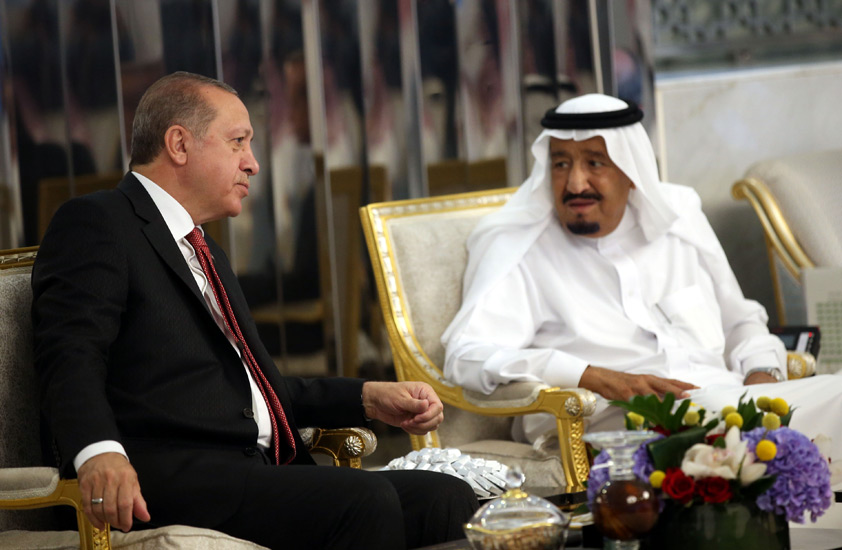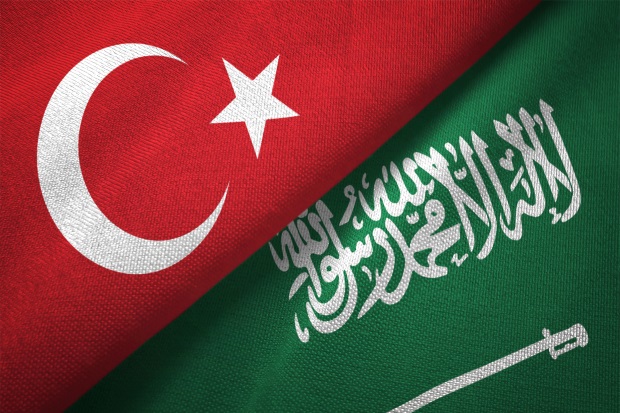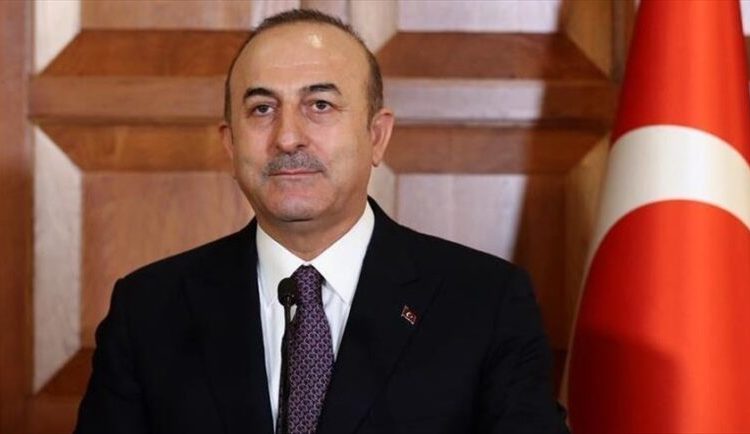Nordic Monitor
Turkish Foreign Minister Mevlüt Çavuşoğlu has played down the opposition party’s criticism of an unofficial embargo led by Riyadh on Turkish goods, the Karar daily reported.
In a written parliamentary inquiry to Çavuşoğlu, Ömer Fethi Gürer, a deputy from the main opposition Republican People’s Party’s (CHP), argued that the Saudi-led boycott undermined Turkey’s exports to the kingdom and asked the Turkish foreign minister what measures had been taken by the Turkish government against the Saudi move.
According to Karar, Çavuşoğlu ignored the boycott in his written response and defined it as “an act of countries conjecturally grouped.” He did not reveal the government’s foreign policy agenda for Saudi-Turkish relations.
For more than a year a number of Saudi and Turkish merchants have stressed that Saudi Arabia has been enforcing an informal boycott of imports from Turkey. In October Saudi authorities started calling on their citizens to “boycott everything Turkish” following a statement by Turkish President Recep Tayyip Erdoğan accusing some Gulf countries of pursuing policies that were destabilizing the region.
Amid the boycott calls, President Erdoğan and Saudi King Salman bin Abdulaziz discussed improving bilateral relations in a phone call on Saturday, a positive first step in easing tensions between the two countries. The same day, Saudi Foreign Minister Prince Faisal bin Farhan Al Saud signaled the end of the informal boycott.

“The boycott of everything Turkish, whether on the level of import, investment or tourism, is the responsibility of every Saudi — trader and consumer — in response to the continued hostility of the Turkish government to our leadership, our country and our citizens,” the head of Saudi Arabia’s Chamber of Commerce, Ajlan Al Ajlan, tweeted on October 2.
Saudi Prince Abdulrahman Bin Musa’ad had also joined calls to boycott Turkish imports, retweeting Erdoğan’s remarks and writing, “Therefore, I call for a full popular boycott of Turkish products …”
Data from the Turkish Exporters Assembly (Türkiye İhracatçılar Meclisi, or TİM) revealed how the unofficial embargo on Turkish goods has undermined Turkey’s exports to the kingdom. According to TİM statistics, Saudi Arabia is the country’s 15th biggest export market, with sales led by carpets, textiles, chemicals, grains, furniture and steel amounting to $2.02 billion in the first nine months of the year, a drop of 16.1 percent compared to the same period of 2019.
While some of the decline can be attributed to the pandemic, TİM statistics showed that the Saudi boycott campaign resulted in a sharp decline of Turkish exports to Saudi Arabia.

“President Erdoğan and King Salman agreed on keeping channels of dialogue open in order for the bilateral relations to be enhanced and for issues to be settled,” the Turkish presidency said in a statement about the Saturday call, which came on the eve of the G20 leaders summit hosted by Riyadh over the weekend.
The same day, Saudi Foreign Minister Prince Faisal told Reuters that his country had “good and amicable” relations with Turkey and that there was no data to suggest that there was an informal boycott of Turkish products.
In addition to those signs showing a possible easing of tensions between Riyadh and Ankara, Saudi Arabia, along with the United Arab Emirates, Egypt and Bahrain, is also seeking a way to end a dispute with Qatar, according to the report.

In October Turkey’s leading business groups and associations urged Saudi Arabia to take action as Turkish firms were encountering growing problems in the kingdom. “This issue has gone beyond bilateral economic relations and become a problem for global supply chains,” said the joint statement signed by industry leaders, exporters, contractors and unions.
“Any official or unofficial initiative to block trade between the two countries will have negative repercussions on our trade relations and be detrimental to the economies of both countries,” Turkish business groups, including the Foreign Economic Relations Board (DEIK), TIM and the Turkish Union of Chambers and Commodity Exchanges (TOBB), said in a statement following the messages from Saudi officials.
“We deeply regret the discriminatory treatment that our companies face in Saudi Arabia. … We expect Saudi authorities to take concrete initiatives to resolve the problems,” said the business groups.

The murder of journalist Jamal Khashoggi in the Saudi Consulate General in Istanbul put a spotlight on the deteriorating relations between Turkey and Saudi Arabia. Since the eruption of the Arab Spring, however, relations between the two countries have gradually, but systematically, deteriorated. During the Arab revolutions, Turkey supported the Muslim Brotherhood as a political movement in various Arab countries and armed and funded radical jihadist groups. However, the leadership of Saudi Arabia is opposed to the brotherhood and sees it as a threat to their own domestic stability.
The watershed moment in Turkish-Saudi relations really came in June 2017, when Saudi Arabia, joined by Egypt, the UAE and Bahrain, severed diplomatic ties with Qatar and took a number of punitive measures against the emirate, including imposing a total blockade. Saudi Arabia accused Qatar of supporting the Muslim Brotherhood along with several other militant Islamist groups in the region. Turkey then came to the aid of Qatar, transporting goods there that had been disrupted by the Saudi Arabia-imposed sanctions. Turkey also increased its military cooperation with Qatar by adding to the number of troops it maintains in the country.
Turkey has condemned last month’s US-brokered deals signed by the UAE and Bahrain to normalize relations with Israel.












